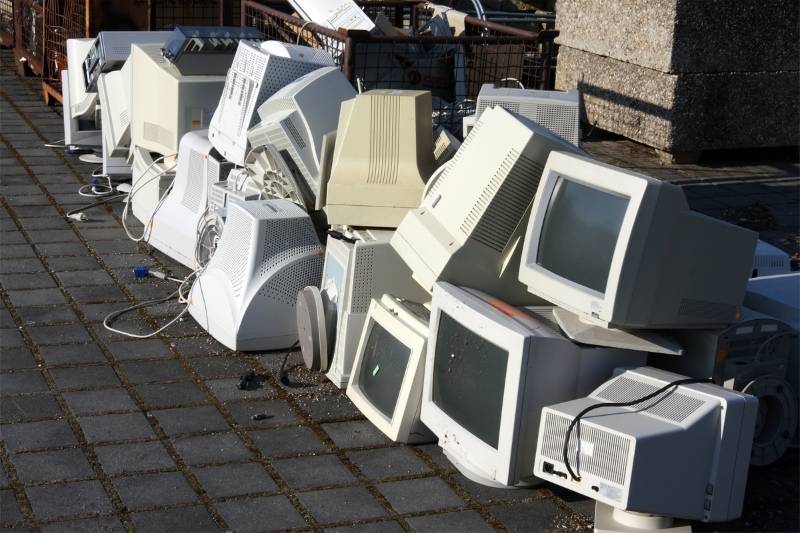SB20: Not just a law, but a sustainability revolution! Learn how California is leading e-waste transformation. Will you join the change?

Do you know all of the electronic appliances in our house have a significant amount of toxic elements in them?
I’m talking about our monitors, TVs, computers, and cell phones!
And what do they do to us?
They cause brain damage, liver complications, and more. And let’s not forget about the drastic impact on our environment.
If you are seeking alternatives to reduce our ecological footprint, you'll appreciate this deep dive into SB20 units.
It's a pivotal piece in the sustainability puzzle that many of us in the niche know all too well.
What is SB20? A Quick Overview
First off, what is SB20? When I first stumbled upon the term, I, too, was curious.
SB20, also known as the "Electronic Waste Recycling Act of 2003" or "California Senate Bill 20," was enacted by the State of California in response to a growing environmental concern. Some also refer to this as “sb-20”.
This provided funding for the proper disposal of specified electronic items.
You see, many household devices we use and take for granted contain hazardous materials.
We're talking lead, cadmium, and even lithium. These aren't just random elements; they can lead to serious health issues like brain damage, liver complications, and more.
The Importance of SB20 in Safe Disposal
So why is SB20 so important?
Imagine a scenario where our landfills' protective layer gets damaged.
Those harmful chemicals? They could easily seep into the groundwater, tainting our soil and water.
This is where the brilliance of the "SB 20 California" law comes into play. Established in 2003, this law was a significant step in ensuring that specified electronic items we use daily are disposed of responsibly.
Under this law, here are the items covered:
- Devices containing cathode ray tubes (CRT devices)
- Standalone cathode ray tubes (CRTs)
- Computer monitors with CRTs
- Laptops rocking liquid crystal display (LCD)
- Desktop monitors with LCD
- Televisions with CRTs or LCD screens
- Plasma televisions
- Portable DVD players with LCD screens
The Costs and Benefits of SB20 Recycling
For those of us living in California, starting January 1, 2005, a fee ranging from $6.00 to $10.00 was added when purchasing an SB20 item.
These fees, by the way, were not arbitrary. They flowed into the Electronic Waste Recovery Account, overseen by the Board of Equalization. This fund helps recyclers offset the recycling costs for SB20 items.
The fees later saw a revision in 2008:
- $8.00 for screens larger than 4 inches but less than 15
- $16.00 for screens between 15 and 35 inches
- $25.00 for screens 35 inches or more
And a fun fact: when purchasing an SB20 item, that recycling fee isn't taxed. Plus, recycling your SB20 items at places like Greencitizen is free, thanks to the prepaid recycling fee.
Regulation and Challenges of SB20
Now, you might wonder, how is this SB20 law regulated?
While the SB20 law does a splendid job of managing e-waste for California residents, it doesn't control the export of electronic waste.
The federal government currently doesn't have concrete regulations in place for this. However, SB20 paves the way by implying that they should soon hop on board. The SB20 system functions by having manufacturers label items with hazardous materials and give consumers the information they need for proper disposal.
Retailers then collect a fee for these electronic items, and recycling centers must be approved to be eligible for payments.
The Road Ahead: Making E-Waste Management Better
While SB20, being the first state law to address e-waste collection and recycling, was a commendable move, it's not a complete solution.
As Greencitizen rightly points out, there's more work to be done.
Especially in ensuring waste isn't shipped overseas without abiding by human rights and environmental standards.
Final Words: The Power of Being Informed
I want to emphasize how crucial being informed is. When we understand laws like the sb-20 and their implications, we're better positioned to make sustainable choices.
The law was pivotal in driving change and pushing for even more robust solutions in our quest for a healthier planet.




There is definately a lot to find out about this issue.
I love all of the points you have made.
Useful information. Lucky me I discovered your website by accident, and I’m shocked why this twist of fate did not took place earlier! I bookmarked it.
Good Article
Thanks for the article. I thought it was good.
Heya i’m for the first time here. I came across this board and I find It truly useful
Keep on going with those great posts. I hope to come back soon for more writing.
It’s always nice when you can not only be informed, but also entertained! I’m sure you had fun writing this article.Excellent entry! I’m been looking for topics as interesting as this. Looking forward to your next post.
Maintain up the great work mate. This website article shows how well you comprehend and know this subject.
Thanks for the article. Much obliged.
I really enjoy the article post.Really looking forward to read more. Cool.
Wow!! I appreciate what you might be doing! I need to relook at screen toaster! Informative and fascinating post!!! keep it up..
GreenCitizen is an environmental conservation company providing you with information, services, and products to help you live a sustainable life.
Follow Us
Join Our Newsletter
Quick Links
Blogs
Services(United States)
For Businesses
For Homes
Useful Links
Copyright © 2024 · All Rights Reserved · GreenCitizen
Privacy Policy | Affiliate Disclosure